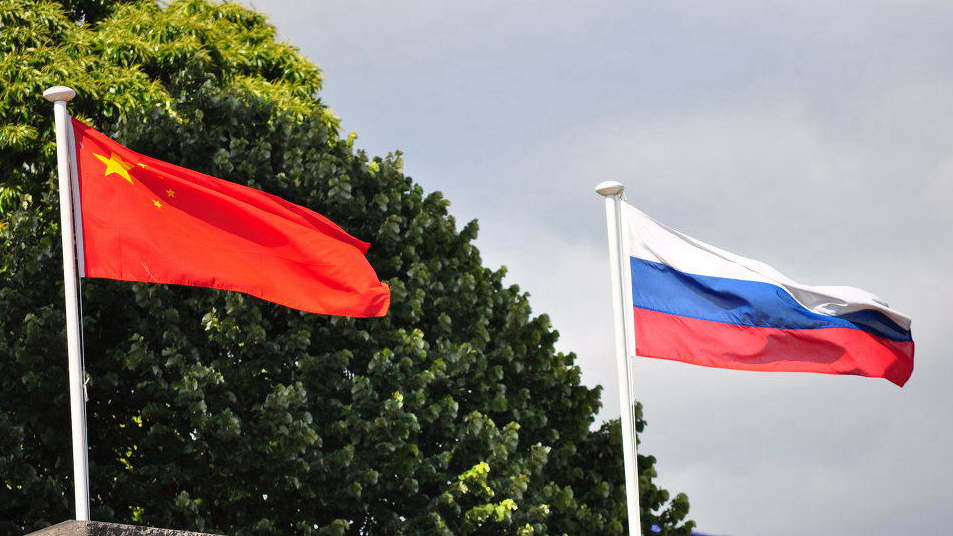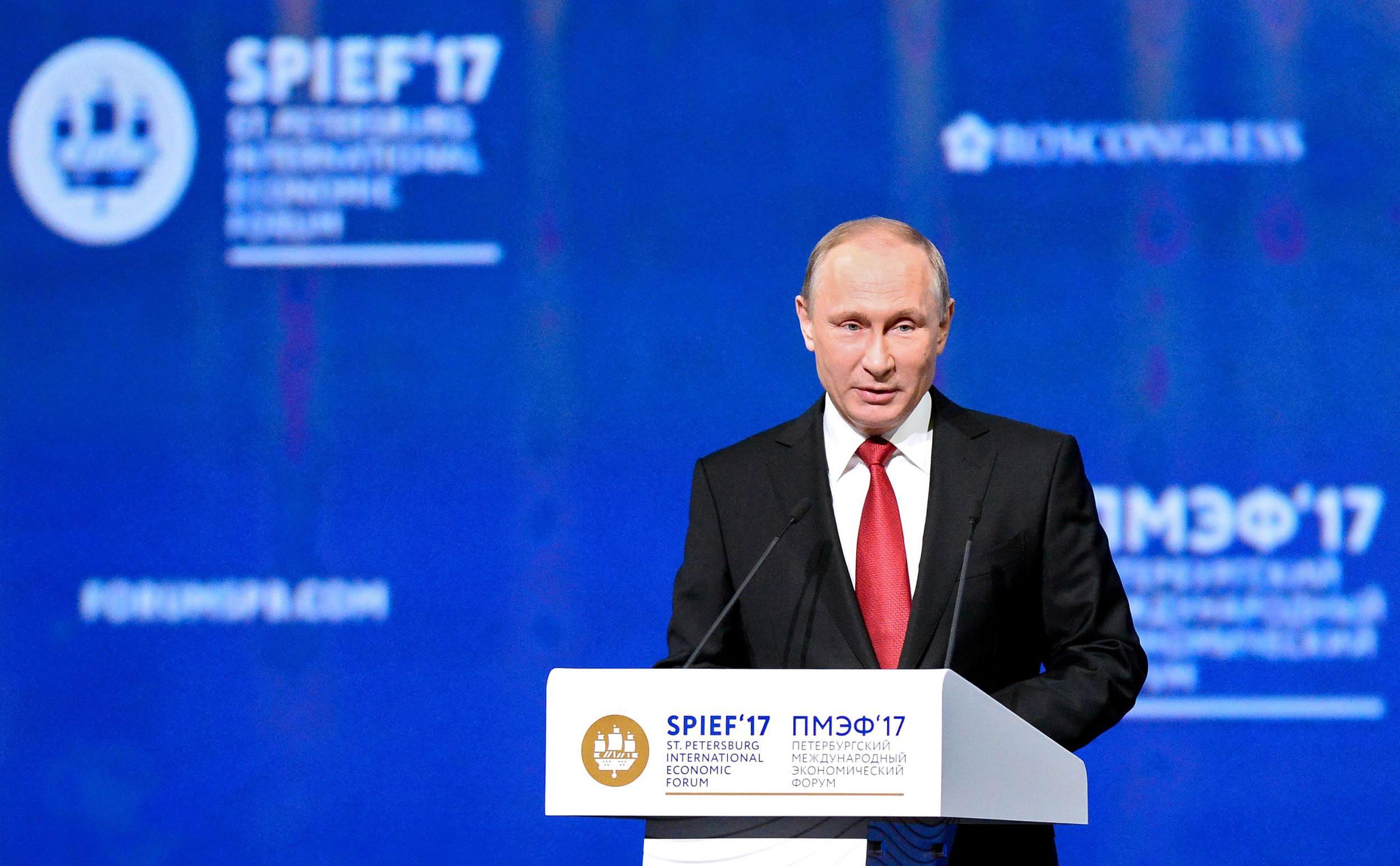
Editor's note: Djoomart Otorbaev is the former Prime Minister of the Kyrgyz Republic, a distinguished professor of the Belt and Road School of Beijing Normal University and a member of Nizami Ganjavi International Center. The article reflects the author's opinions, and not necessarily the views of CGTN.
During the final session of the 17th annual meeting of the Valdai Discussion Club on October 22, a Chinese participant asked Russian President Vladimir Putin: "Is it possible to imagine a military alliance between China and Russia?" The president's answer was quite unexpected: "You can imagine everything. We have always proceeded from the fact that our relations have reached such a degree of interaction and trust that we do not need this, but theoretically, it is quite possible to imagine such a thing."
So, perhaps for the first time, the Russian side does not reject the potential possibility of a military alliance in some form. "Without any doubt, our cooperation with China is bolstering the defense capability of China's army," Putin said, adding that the future could see even closer military ties between the two countries.
Naturally, both Russia and China care about the stability of the strategic space around their borders. The absence of a formal military treaty does not prevent the two countries from conducting joint activities.
For example, at the end of 2019, Russia, China, and Iran held exercises in the Gulf of Oman, and in 2015 even in the Mediterranean Sea, which is quite far from the coast of China, but close to the ports of Greece and Italy, which are gradually coming under the operational control of China. The joint exercises Center-2019, which was attended by military personnel from Russia, China, India, Pakistan, Kazakhstan, Kyrgyzstan, Tajikistan and Uzbekistan, worked out the tasks of combating international terrorism and preventing possible aggression in the Central Asian region.
How realistic is a "hypothetical" creation of a close military alliance between the two countries? In this case, it will be necessary to designate as a source of a threat, not just something general as, for instance, "terrorism," but a real reason like a menace from the U.S., as well as its allies, for example, Japan.
Besides, each side has its own "local" potential threats. For example, China is surrounded by potential hot spots: a territorial contest with Japan, disputes over islands in the South China Sea, the potential for a clash in the Taiwan Strait, and with India this year alone there were few recorded clashes of military personnel on the border.

Russian President Vladimir Putin gives a speech during the St. Petersburg International Economic Forum in St. Petersburg, Russia, June 2, 2017. /CFP
Russian President Vladimir Putin gives a speech during the St. Petersburg International Economic Forum in St. Petersburg, Russia, June 2, 2017. /CFP
In 2017, China's leadership set two main goals for its defense strategy. To complete modernization by 2035 and to become a "world-class" armed force by the 100th anniversary of the founding of the country in 2049. China is planning to implement this strategy based on its own scientific and technological achievements, stemming from the principle of self-reliance. The need for large-scale international cooperation was not mentioned in this strategy.
China is becoming a major military power. What is new is that it actively declares this fact. While addressing an event commemorating the 70th anniversary of the Chinese People's Volunteers (CPV) army entering the battlefield in the War to Resist U.S. Aggression and Aid Korea on October 22, Chinese President Xi Jinping said that China must turn itself into a modernized power and build a world-class army. A strong military can provide "strategic support" to the country's national rejuvenation. This statement was published by all the Chinese news agencies, which means that China wanted its "hints" to be heard by everyone.
It should be considered that the potential creation of a potential full-fledged military alliance would represent a fundamental change for both countries' foreign policies. China traditionally did not join any military alliances, offered to resolve all conflicts exclusively by "political and diplomatic means," which is Beijing's official formula, and thus won a lot of sympathy around the world.
A military alliance with Russia, although it would noticeably strengthen China's position, will sharply reduce Beijing's prospects for at least something to agree with Washington, no matter who enters the White House.
It seems that the mechanism for implementing the military-political alliance between Russia and China should be somewhat different from the formal creation of a military bloc. Military relationships established between two independent states based on their principles of national security and sovereignty perhaps would be more efficient and productive.
Both countries are quite ambitious in their defense plans that are nationally oriented and, most importantly, already have quite a few bilateral and multilateral agreements that one more treaty could potentially harm cooperation rather than consolidate it. A probably better strategy would be evolutionary strengthening and deepening of already established cooperation mechanisms, like exchanges of modern military techniques and personnel swaps.
All this could be developed without specifying the exact parameters, but at the same time reminding the world of the existing strategic military cooperation.
Military alliances were the prevailing mode of collaboration only during the Cold War era and have no basis today. Both China-U.S. relations and U.S.-Russia relations have not reached a level that one needs to ally with the other.
Considering all the above factors, I believe that the formation of a military-political bloc between China and Russia seems unlikely. The words of the Russian President can be perceived as recognition of the high level of relations between the two countries, as well as a warning to their rivals about the danger of underestimating the degree of trust and cooperation between the two countries.
(If you want to contribute and have specific expertise, please contact us at opinions@cgtn.com)

